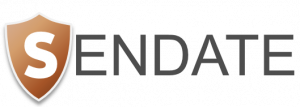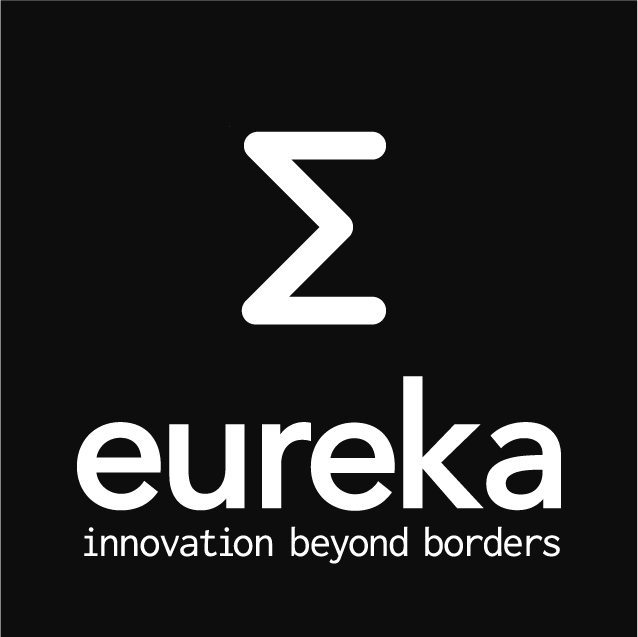More secure data centres in Europe
Kick-off for Celtic-Plus project SENDATE
On 17 October 2016, Celtic-Plus flagship project SENDATE was officially launched at a high-level event in Berlin. This project with 80 Partners from Finland, France, Germany and Sweden will develop solutions for more secure data centres in Europe.
Today, large data centres are the most important control points of the Internet. They have a huge computing power and are located far away from the customer. This leads to low flexibility, high traffic in the network, long delays, and security issues. To respond to these challenges, more convergence of telecommunication networks and IT is needed, and data centres must be located closer to the customers. The main goal of the three-year project coordinated by Nokia is to pave the way to this new type of network through delocalised and securely connected date centres.
SENDATE will work on a solution to connect European data centres through enhanced transport networks and improved networking concepts that will results in reinforced overall security. The project will lead to better control of data flows and new security concepts on the internet.
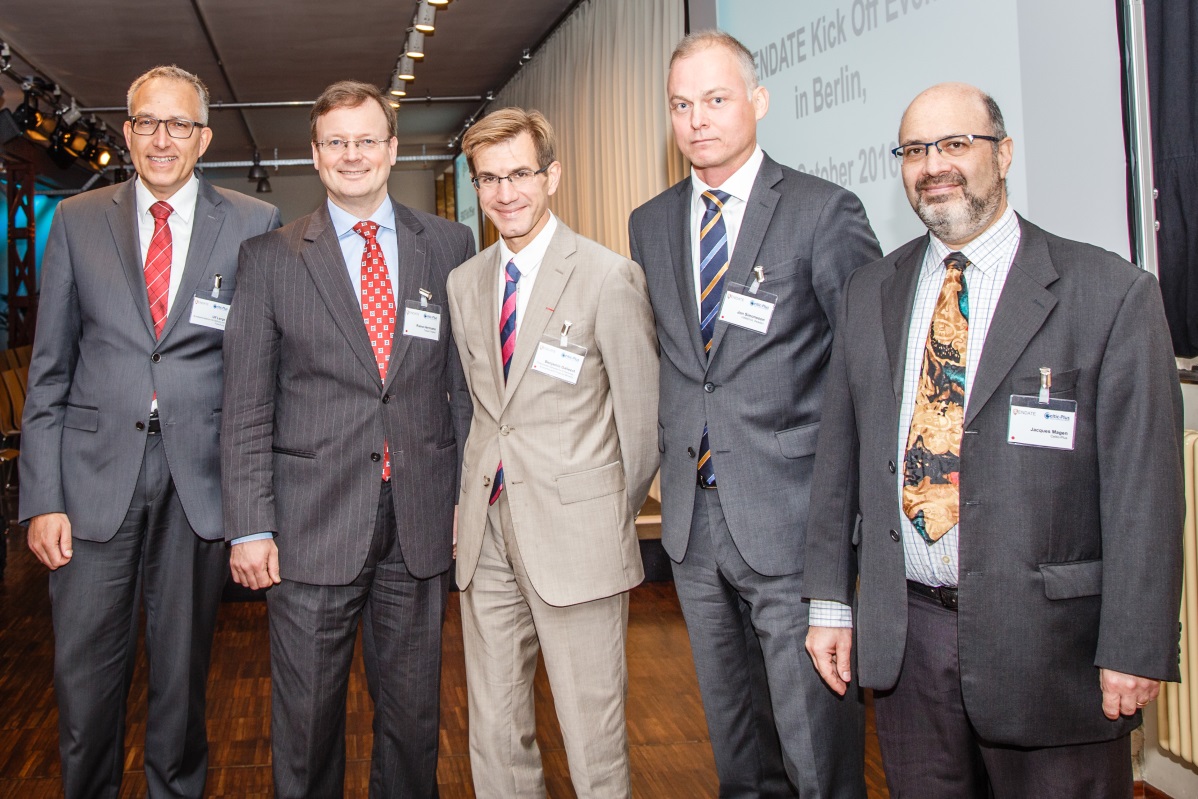
From left to right: Dr. Ulf Lange (Head of Unit, Communication Technologies, IT-Security, BMBF), Dr. Raine Hermans (Director, International Operations, TEKES, Finland), Benjamin Gallezot (Deputy Director General, DGE, France), Jon Simonsson (Deputy Director General at Ministry of Enterprise and Innovation, VINNOVA, Sweden), Jacques Magen (Celtic-Plus Chairman). [Photo: © 2016 Steffen Gebert]
Dr. Ulf Lange from the German Ministry of Education and Research, BMBF, underlined at the kick-off event that current trends towards Industry 4.0 and autonomous driving are good news for Europe and its industries, as these technologies generate a strong need for new types of network functionalities and data centres with low latency. This, he explained, creates new demand for network architecture and network performance, and it offers European companies a unique opportunity to market new communication technologies made in Europe.
Dr. Lange stressed that no country can do this alone. He said that only when Europe’s public and private actors join forces and bring together the political and technological capacities to act on this global issue, Europe can be successful. This is why policy makers and industry from Finland, France, Sweden and Germany have invested 70 million euro to initiate this common undertaking. They consider the project a central pillar for enabling the safe, reliable, and stable communication networks of the future.
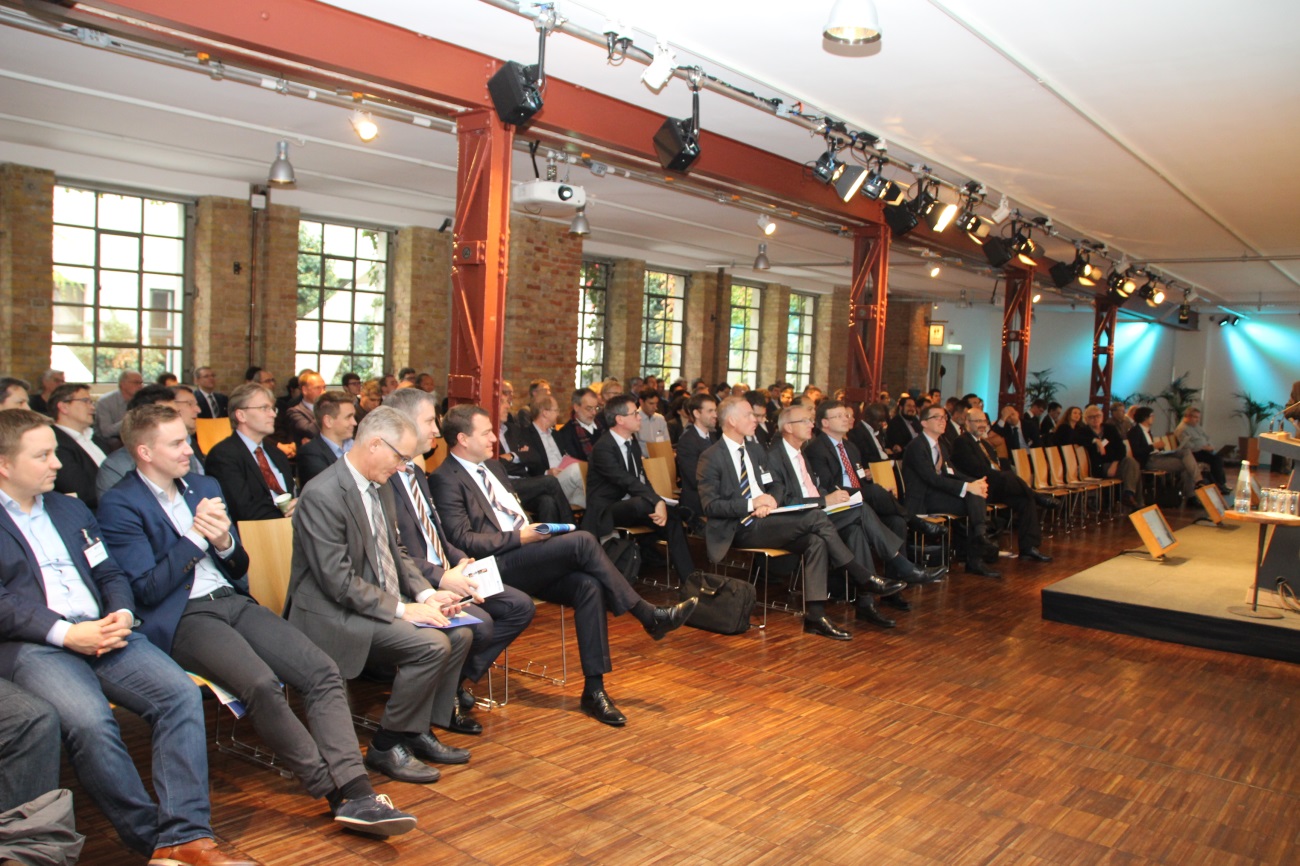
SENDATE Kick Off Meeting in the Kalkscheune in Berlin [Photo: © 2016 Christiane Reinsch/Celtic Office]
Dr. Raine Hermans, Director of International Operations at TEKES, Finland, talked about open innovation. In Celtic-Plus open innovation is built in through a structure of sub-projects that allows to continuously align objectives and to have even competitors jointly contribute to these objectives. According to Mr Hermans, this can be the starting point for contributing to future application spaces.
He gave a vision about a future without hospitals and the first typical reaction when somebody hears about it: “This is impossible”. His point is that if we do not have a really challenging vision for the future, then we are just incrementally improving today’s solutions. We need to start building entirely new systems and systemic innovation. Mr Hermans challenged the SENDATE community to build a system, where individuals own there data and have the right to decide with whom they share their data in different contexts, including mobility, healthcare, grocery and others. In that case, we need extremely secure, safe, and stable systems where the individual data is treated in a way that nobody can threaten them and application spaces can be protected. Maybe SENDATE could become a platform where this can be applied in new ways, not only between Finland and Sweden, but between Finland, Sweden, Germany and France.
Jon Simonsson, Deputy Director General at the Swedish Ministry of Enterprise and Innovation, VINNOVA, said that he is happy to see that the five partner countries have joined forces to be part of an open innovation system creating an open arena where industries, public sector and universities can cooperate and integrate new technologies together. He underlined that the public sector in Sweden is very important and that this sector has become part of the testbed notion to allow much more experimentation than what has been done up to now. In this context, Mr Simonsson said that international openness is very important for Sweden. He considers the SENDATE project to be a great example of an international cooperation that VINNOVA is keen to fund.
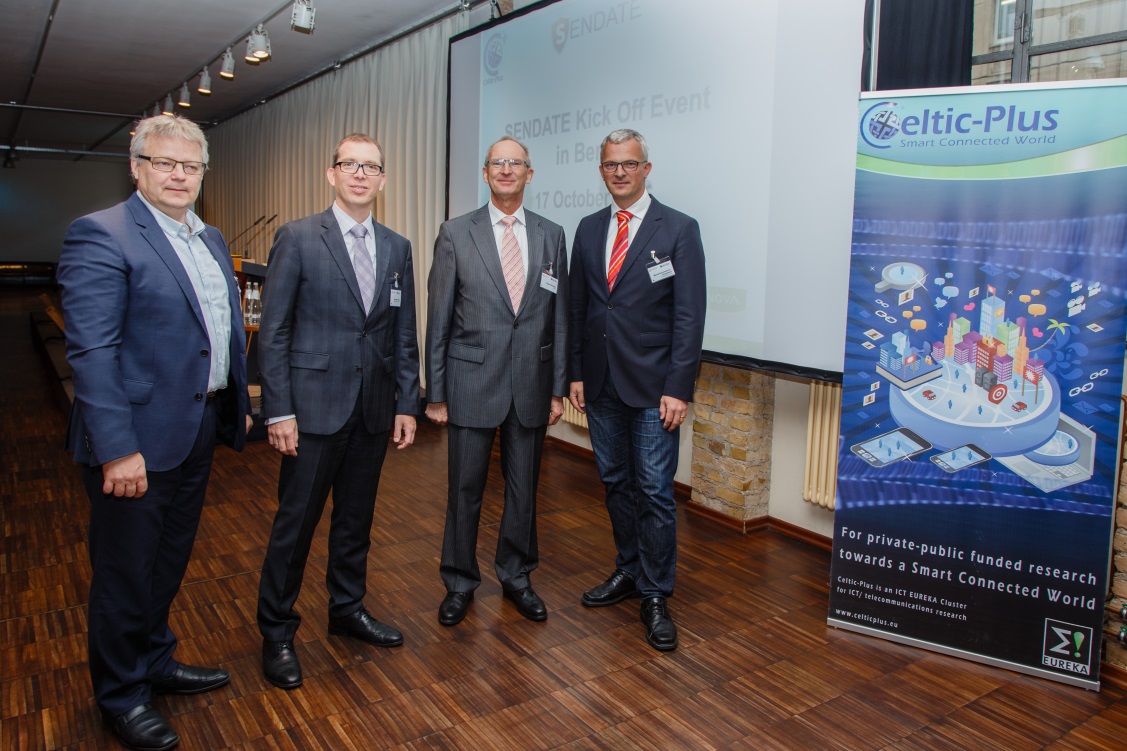
From Left to right: Tor Björn Minde (Head of Research Strategy, Ericsson), Jörg-Peter Elbers (Vice President Advanced Technology, ADVA), Sigurd Schuster (Head of Business Operation MN CTO, Nokia), Bernd Sommerkorn-Krombholz (Manager Optical Technology & Performance, Coriant). [Photo: © 2016 Steffen Gebert]
Link to BMBF Press Release here
About SENDATE
SENDATE, Secure Networking for a Data Centre Cloud in Europe, is a 70 million euro public-private partnership project comprising 93 small and large companies, research organisations, and universities from Germany, France, Finland, Norway, and Sweden. The project runs from April 2016 to May 2019 under Celtic-Plus, the EUREKA Cluster for a Smart Connected World, and is publicly co-funded by the research ministries/agencies BMBF (Germany), DGE (France), TEKES (Finland), and VINNOVA (Sweden).
Website: http://www.sendate.eu


